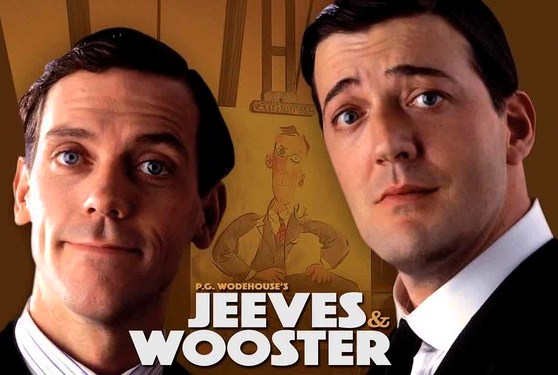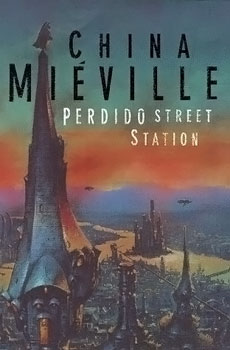The first campaign I remember was the 1980 Democratic primary race between Jimmy Carter and Ted Kennedy. As a five-year-old, I decided I liked Kennedy because he looked younger (ah, the innocence of youth!) By the mid-1980s, as a budding political junkie, I poured over the
Wichita Eagle-Beacon every day after school. I looked forward to discussions in Mr. Stang's class about the latest edition of
Weekly Reader, a schoolboy's best source for news. My subscription to the
National Review began at age 14...I couldn't get enough of politics.
Every November since I turned 18, and in almost all primary campaigns in-between, I have gone to the polls to vote. But this year is like no other. I have never been more demoralized by a presidential campaign. How did this happen?
Today, confidence in institutions (the media, church, Congress, the courts, etc.) is at an
all-time low. The public does not believe that the system, as it exists today, serves them. So whom does it serve? In the eyes of many Americans, it serves "The Establishment." That murky term refers to the people in power in Washington and Wall Street...people who attended the same elite universities...people who have benefited from globalization.
And then there were the OTHER people; the "less established," if you will. College students on the cusp of a working life, blue-collar workers in shrinking professions, the under-educated, the under-employed, the laid-off rejects of the new economy, the 50-something newly unemployed and now unemployable...the scared, the tired, and the bewildered. Who would speak for them? Certainly not the Establishment, with their tired calls for more free trade, a rejection of national identity, and more of the same song they've sung for so long. Forget conservatives and progressives. The establishment has some of both.
Thus, a vacuum opened...and we all know how nature feels about a vacuum. There was now a place for someone to enter who could try to appeal to these voters. Enter Bernie Sanders and Donald Trump. Each spoke to voters' desire for change, in direct opposition to the political establishment. For those "less established" on the Left, Bernie was the choice. The more conservative of these voters flocked to Trump. Trump and Sanders couldn't have seemed more different. Indeed, many of their policies were in direct conflict. Yet, each appealed to the same vague feeling that the people winning were rigging the system.
Opposite these two change agents were the Twin Establishmentarians: Jeb Bush and Hillary Clinton. Both part of America's aristocracy, these two candidates couldn't have been more a part of the national elite. Each supported free trade and globalization. Each was enthusiastic about immigration (despite Bush's protestations to the contrary). Not surprising. Their core constituencies benefited from the cheap labor...they didn't have to worry about competing for jobs with those newcomers. They certainly wouldn't have to live next door to them. The Democratic Party hitched their wagon to illegal immigration, or as they considered it, "voter importation." Their active avoidance of enforcing America's immigration laws and their embrace of illegal immigration was the height of cynicism. It may be something they later regret.
For Trump, an enormous array of Republican candidates proved to be a godsend. He was able to win primary after primary as the various Establishment candidates split the country club vote. Rubio and Bush realized much too late that they were paving the way for Donald Trump. It seemed improbable...no, it seemed IMPOSSIBLE. Who could take seriously the possibility of DONALD TRUMP winning the Republican nomination? I didn't. But the one person who did take it seriously was Donald Trump. He would have the last laugh in that primary. He would ride to victory on a wave of anger at the Establishment.
The irony of ironies was that the Democratic Party, champion of the common man, would be responsible for screwing the other populist candidate out of the nomination. The structure of the Democratic primary system, with its super delegates and their special powers, would ensure the election of Hillary Clinton. Clinton, who started her presidential campaign sometime around 1993, had managed to get the entire Democratic Establishment behind her before Bernie Sanders had time to contemplate a run. Had it been a fair race, one without super delegates, Bernie Sanders would probably have won. Hillary Clinton had been a uniquely unpopular figure until the rise of Donald Trump.
With a grating voice and the lack of a common touch, Clinton displayed none of her husband's natural political charisma. She combined that with an ambition that knew few bounds...certainly not the bounds of an ideology. She's held several. In the early '90s she was the feminist counterpoint to Bill's pragmatism. But in the span of 15 years she completely changed her image. As a senator from...New York? Illinois? Arkansas?...her only home was the place of most convenience. That applied to politics as well. Now a centrist, Hillary Clinton embraced the Great Middle of American politics. A wise choice, it seemed. But then she lost to Barack Obama. Now, a new transformation: to become a "progressive." The pressure from her Left was intense. Bernie Sanders was uncompromising...so she had to become the same.
All politicians are to some degree pragmatists first, ideologues second. But Hillary Clinton developed a reputation as an outlier on that scale. Her ambition drove everything. This led to mistakes: Libya, emails, etc. It didn't help that she developed a reputation as
unpleasant to the "little people" who surrounded her. "The spineless politician with contempt for the common folk" is not a basis for any successful presidential campaign...
Unless you are facing Donald Trump. He is the personification of every '80s movie villain: the rich asshole who thinks he can get away with anything. Loud, crude, litigious, and full of shit, Donald Trump is equally as drunk with power as Hillary Clinton. But his sort of power has always been more of the celebrity-kind. Put aside the huge amounts of money and the power that brings...he always sought the kind of power that big-time celebrities brought to the table. Maybe that's why he wants to be president...who knows. Regardless, he is a first-class douchebag who has very little interesting to say about what our government ought to do.
At first, I did not understand the appeal of Donald Trump. It wasn't until I started to realize the depth of the disdain the public had for the Establishment that I began to realize what was happening: Trump was the face of a movement. That movement sought change agents. Agent Sanders failed to escape the primaries. Agent Trump successfully made his way to the general election. He will almost certainly fail...not because the public rejects change, but because they reject him. However, this thirst for demolishing the Establishment is not about to go away. The public will continue to seek agents for this change until they find the right one. As well they should. I believe our politics over the next
x years will defined by this opposition to the political establishment. This means that Hillary Clinton, the candidate of
war and
Wall Street, may very well find herself on the wrong side of a movement that is equally as strong on the Left as it is on the Right.
What's a fella to do? For me, it's a reluctant vote for Gary Johnson, the lightweight Libertarian. Unlike many people, I do not begrudge you a vote for the Twin Disasters. I can understand why a conservative, desperately trying to avoid Obama II, votes for Trump. Democrats, I can see why you get drunk and pretend Hillary is a progressive, even though you probably aren't really fooled. Hey, you want to stop Trump. I get it. But I think you'll both regret it.
What comes after this? Maybe someone from the two parties can take this anti-Establishment movement and mold it into something electable. I see a path to this result. Perhaps I will take that up in my next post.








